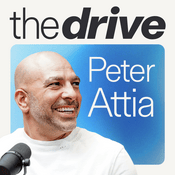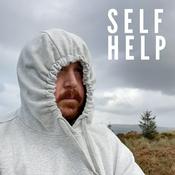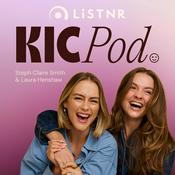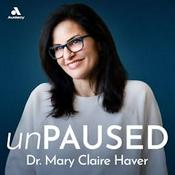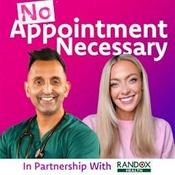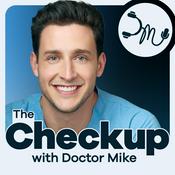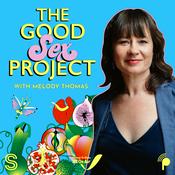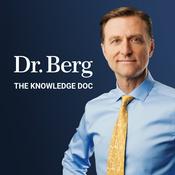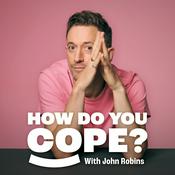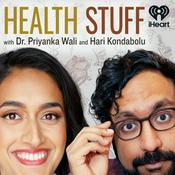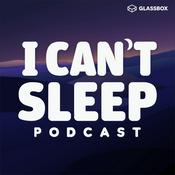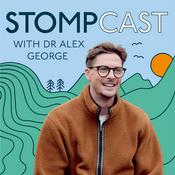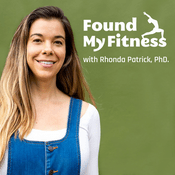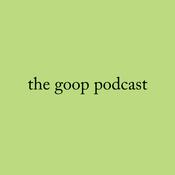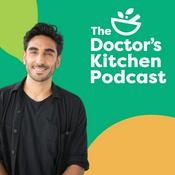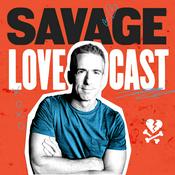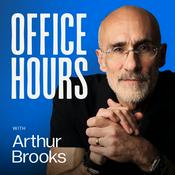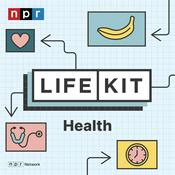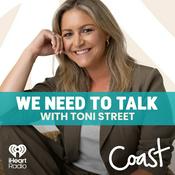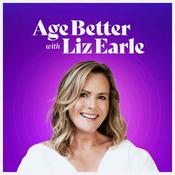30 episodes

The Ethics of AI in Healthcare: Beyond the Stochastic Parrot | Dr. Jessica Morley (Yale Digital Ethics Centre)
24/9/2025 | 1h 3 mins.
"AI has the potential to re-ontologize healthcare—to completely redesign what we consider to be a disease, what we consider to be a disability, and how we organise care. But we need to decide what good healthcare actually means before we AI-ify everything."— Dr Jessica MorleyIn this episode of Clinical Changemakers, Dr Jessica Morley, an AI ethics expert and researcher from Yale Digital Ethics Centre, challenges our understanding of what large language models actually are and what they mean for healthcare. Drawing from her work on data ethics and her involvement with OpenSafely during the pandemic, Dr Morley explains why viewing AI as "stochastic parrots" is crucial for healthcare implementation, explores the concept of re-ontologizing medicine, and argues why we need ethical frameworks before technological deployment rather than after.Key TakeawaysStochastic Parrots in Medicine: Large language models don't understand medical concepts—they predict the most likely next word based on probability from their training data. This means they can give you different answers to the same medical question and lack the contextual understanding crucial for patient care. Understanding this fundamental limitation is essential for safe healthcare implementation.The Re-ontologizing Power of AI: AI doesn't just replace existing tools like upgrading from a physical to digital stethoscope. It has the power to completely redesign healthcare by redefining what constitutes disease, changing how we organize care, and separating diagnosis from physical patient interaction. This transformation can be powerful and positive, but only if we're intentional about our goals.The Inverse Data Quality Law: Just as the inverse care law states that those who need healthcare most get it least, the inverse data quality law means those who need AI healthcare tools most will have the poorest quality data about themselves. This creates a two-tier system where marginalized populations get inferior AI-driven care.Social License Trumps Legal Permission: Technical feasibility and legal compliance aren't enough for successful AI implementation in healthcare. Projects like the UK's Care.data failed despite being legal because they lacked social acceptance. OpenSafely succeeded by building in privacy protections, transparency, and meaningful public engagement from the start.Where to Find Our GuestDr Jessica Morley (LinkedIn, Google Scholar)In This Episode01:27 - Stochastic parrots: Understanding what LLMs actually do04:27 - Emergent properties: Why LLMs remain sophisticated probability machines11:57 - Moral worth and parasocial relationships: When humans attach meaning to AI14:33 - Re-ontologizing healthcare: How AI redesigns medicine itself19:28 - The ethical traps: What happens when we AI-ify without thinking about outcomes25:33 - Two-tier systems: How AI could worsen healthcare inequalities28:44 - Ethics vs. law: Why we need both rules and values32:31 - Learning from NHS failures: The importance of not making assumptions47:43 - Global policy tensions: EU regulation vs. US "let it rip" approaches54:33 - False dichotomies: Moving beyond "some care vs. no care" thinking59:02 - Current global sentiment: From tech optimism to healthcare cautionReferenced* Dr Morley’s Paper - The ethics of AI in health care: A mapping review (link)* Defining a Stochastic Parrot (link)* OpenSafely platform and approach to health data research (link)* Lessons from Care.data project and its failure in the UK (link)ContactIf you have any feedback, questions or if you'd like to get in touch, reach out at [email protected] there 🙌As a small independent podcast, every rating and share makes a real difference in helping us reach more healthcare leaders. If you found value here, please rate us and pass this along to a colleague who needs to hear it.Clinical Changemakers is a podcast that explores inspiring stories of leadership and innovation in healthcare. To learn more and join the conversation, visit: www.clinicalchangemakers.com This is a public episode. If you would like to discuss this with other subscribers or get access to bonus episodes, visit www.clinicalchangemakers.com

How Systems Thinking Can Fix Healthcare's Organizational Chaos | Dr Sharen Paine
08/9/2025 | 1h 11 mins.
"We want a two-way flow of communication so that we have a better understanding through the levels of an organisation up through those levels of what's actually happening and we can make decisions closer to the ground."— Dr. Sharen PaineIn this episode of Clinical Changemakers, Dr. Sharen Paine, a systems thinking expert with a doctorate in business administration focusing on cybernetics, explores why healthcare organisations repeatedly struggle with the same problems despite constant restructures. Drawing from her hands-on work with ophthalmology services, Dr. Paine introduces the Viable System Model (VSM) as a framework for creating truly functional healthcare organisations that can adapt and thrive rather than merely survive.Key TakeawaysCybernetics vs. Command-and-Control: Healthcare systems fail because they rely on one-way, top-down commands rather than cybernetic feedback loops. True organisational health requires continuous information flow between all levels, like an aircraft's autopilot system that constantly adjusts based on environmental feedback, not rigid directives from a distant control tower.The Black Hole of Management Chaos: Service managers and clinical directors get consumed by day-to-day firefighting because healthcare systems lack proper coordination functions. Without clear coordination mechanisms, everything collapses into the management layer, creating a "tumble dryer" of urgent tasks that prevents strategic thinking and long-term planning.The Five Functions of Viable Systems: Every healthcare organisation needs five continuously operating subsystems: (1) Operations that deliver patient care, (2) Coordination that orchestrates daily activities, (3) Management that sets conditions for success, (4) Intelligence/Planning that looks ahead strategically, and (5) Governance that defines purpose and values. Most healthcare systems conflate these functions, leading to dysfunction.Recursive Autonomy Creates Efficiency: The VSM applies at every level—from national health systems down to individual departments. Each level requires all five functions to operate with appropriate autonomy. A $150 equipment purchase shouldn't require Wellington approval, just as an ophthalmology clinic shouldn't decide national hospital placement. Right-sized autonomy eliminates bureaucratic bottlenecks.Coordination is the Missing Function: Healthcare systems fail to recognise coordination as a distinct, critical function requiring dedicated resources and IT systems. Coordination includes prioritised wait lists, rosters, schedules, skills matrices, and training—currently done manually or through spreadsheets, creating errors and inefficiency. Proper coordination would prevent most day-to-day chaos.Where to Find Our GuestDr. Sharen Paine (LinkedIn)In This Episode00:00 - Introduction: Dr. Sharen Paine's background in cybernetics and systems thinking07:37 - Sharen's journey: From mental health services to ophthalmology system challenges15:05 - Production planning struggles: Why system changes fail without organizational support18:16 - The governance-management-operations disconnect in healthcare hierarchies25:04 - Introduction to the Viable System Model: Five essential organizational functions26:59 - Defining viability: How organizations persist and adapt over time28:05 - The five subsystems explained: From governance to operations36:05 - Applying VSM to ophthalmology: What it looks like in practice46:33 - Functions vs. roles: VSM describes what needs to happen, not organization charts55:29 - Building collaborative understanding: Clinicians learning constraints, managers understanding frontlines59:48 - Bottom-up implementation: Practical steps toward VSM adoption1:05:12 - The VSM perspective: Seeing cybernetic patterns everywhereReferenced* Utilising insights from cybernetics and the Viable System Model to address health system disconnects (Doctoral Thesis)* Principles for embedding learning and adaptation into the New Zealand health system functioning: the example of the Viable System Model (paper)* Utilising VSM insights to address health system disconnects: introducing three novel organisational pathologies (paper)* Mapping clinical governance to practitioner roles and responsibilities (paper)ContactIf you have any feedback, questions or if you'd like to get in touch, reach out at [email protected] Attribution: Music by AudioCoffee from Pixabay.Before you go! 🙌As a small independent podcast, every rating and share makes a real difference in helping us reach more healthcare leaders. If you found value here, please rate us and pass this along to a colleague who needs to hear it.Clinical Changemakers is a podcast that explores inspiring stories of leadership and innovation in healthcare. To learn more and join the conversation, visit: www.clinicalchangemakers.com This is a public episode. If you would like to discuss this with other subscribers or get access to bonus episodes, visit www.clinicalchangemakers.com

AI's Jagged Frontier and Why Human Judgement Still Matters | Dr Graham Walker (Kaiser Permanente)
12/8/2025 | 54 mins.
"I think judgment, I've been honing in on that word more frequently recently because I feel like the judgment piece is the piece that feels particularly like human in this decision."— Dr Graham WalkerIn this episode of Clinical Changemakers, Dr Graham Walker, an ER doctor and AI healthcare leader, discusses his role at Kaiser Permanente and the challenges and successes of integrating AI into healthcare. He emphasizes the importance of communication, leadership, and the need for alignment in large healthcare systems. Dr. Walker shares insights on predictive AI tools, the operationalisation of AI in patient care, and the ethical considerations surrounding AI's explainability. He also highlights the rapid adoption of AI scribes across 4.6 million members and the balance between AI benefits and risks in clinical practice.Key TakeawaysLeadership through servant mentality: Successful healthcare innovation requires leaders who ask "How can I help you?" rather than directing from above. Clear communication, removing blockers, and building relationships are essential for large-scale change.The 85% capacity rule: Healthcare systems running at 100% capacity fail due to variance in patient complexity and unpredictable demand. Queuing theory suggests keeping 10-15% flexibility to handle the inherent unpredictability of medical care.Predictive AI has staying power: Kaiser's Advanced Alert Monitoring system, running live since 2018, successfully predicts ICU transfers and rapid responses across all inpatients. The operational challenge isn't building the model—it's fine-tuning sensitivity/specificity and creating sustainable workflows.AI scribes: Healthcare's fastest adoption: The rapid rollout of AI scribes represents perhaps the fastest technology adoption in healthcare history, driven by ease of use (just install an app and hit record) and immediate physician benefit in reducing "pyjama time" documentation.Judgment remains human: While AI excels at pattern recognition and data synthesis, clinical judgment—weighing risks, understanding context, and making treatment decisions—remains distinctly human. The scraped knee doesn't need septic workup; that's judgment, not diagnosis.Where to Find Our Guest* Dr. Graham Walker (LinkedIn)In This Episode00:00 - Introduction: Graham Walker's role at Kaiser Permanente Northern California04:36 - Innovation framework: Value-based care vs. fee-for-service and finding ideas with potential07:08 - Commercialisation strategy: Building internal tools for external deployment11:00 - Leadership lessons: Coalition building and relationship management in large institutions16:34 - Queuing theory in healthcare: Why running at 100% capacity breaks systems19:48 - Predictive AI success story: Advanced Alert Monitoring system in production26:00 - The human element: Why unexplainable AI might force better clinical thinking32:33 - AI scribes rollout: Fastest healthcare technology adoption in history39:30 - Information fidelity challenges: Note bloat, omissions, and human nature45:02 - The judgment frontier: What remains uniquely human in clinical decision-making50:20 - Advice for healthcare leaders: Use AI tools daily to understand capabilities and limits53:57 - Off-call introduction: Building transparency in physician work and workload dataReferenced* Dr Walker’s company website Offcall* Dr Walker’s Medical Calculation Website MedCalc* Paper: Automated Identification of Adults at Risk for In-Hospital Clinical Deterioration (Link)* Paper: Ambient Artificial Intelligence Scribes to Alleviate the Burden of Clinical Documentation (Link)* Queueing Theory (Wikipedia)* Servant Leadership (Link)ContactIf you have any feedback, questions or if you'd like to get in touch, reach out at [email protected] Attribution: Music by AudioCoffee from Pixabay.Before you go! 🙏If you enjoyed the podcast, please share the love by rating us and sharing it with a friend or colleague. This is a public episode. If you would like to discuss this with other subscribers or get access to bonus episodes, visit www.clinicalchangemakers.com

The Rise, Fall, and AI-Powered Rebirth of Evidence-Based Medicine | Dr. Richard Lehman & Dr. Raj Mehta
24/6/2025 | 1h 2 mins.
“You know, what if they were to actually put it’s [AI] mind to a science of practical compassion for everybody?… if the right machines were to come along and help us do it, that's going to be a fabulous thing.”Dr Richard Lehman is a retired GP from Oxfordshire who had a "ringside seat" to the birth of evidence-based medicine, previously held academic positions at Oxford and Yale, later becoming Professor of Shared Understanding of Medicine at the University of Birmingham. Dr Raj Mehta is a physician and evidence-based medicine educator who views EBM as essential heuristics for discerning truth in clinical practice. Together, they bring decades of experience wrestling with how we know what works in medicine, from the historical foundations laid by James Lind's scurvy trials to the AI revolution that promises to transform how we synthesise and apply medical evidence.Key TakeawaysTruth-seeking requires method, not just conviction: Before EBM, medicine operated largely on "conviction-based" approaches collected in massive textbooks. The shift to systematic evidence evaluation transformed how we separate opinion from fact in clinical practice.Numbers Needed to Treat illuminate magnitude: Tools like NNT help clinicians and patients understand effect sizes. Context and timeframe matter enormously.AI could democratise and personalise evidence: Rather than replacing doctors, AI might enable real-time synthesis of evidence matched to individual patients, creating feedback loops between treatments and outcomes at an unprecedented scale.The evidence map has gaps and mountains: Current evidence is like an 18th-century road atlas - some areas well-mapped, others blank. AI could be the "sat nav system" for medicine that acknowledges uncertainty while guiding decisions.Social determinants still trump beta blockers: While we refine molecular treatments, the biggest health impacts remain at the policy level - safe neighbourhoods, warm homes, and social conditions. Medicine must embrace "practical compassion" beyond prescriptions.Where to Find Our Guests* Dr. Richard Lehman (X/Twitter)* Dr. Raj Mehta (X/Twitter)In This Episode00:00 - Introduction: Why evidence-based medicine matters now more than ever02:54 - The scientific method in medicine: Discerning truth from fiction in clinical practice06:06 - James Lind and scurvy: The 200-year gap between discovery and adoption12:01 - Bradford Hill and the RCT revolution: Moving from mechanism to measurement14:29 - Richard's ringside view: When "evidence-based medicine" arrived in Oxford19:10 - The limits of population evidence: Why Numbers Needed to Treat aren't enough22:39 - Shared decision-making complexity: The overwhelming challenge of multimorbidity26:00 - The AI revolution: From medical scribes to comprehensive evidence synthesis29:39 - Patient empowerment in the age of monetised medicine36:43 - The pre-Copernican challenge: Are we just getting better at measuring the wrong thing?39:01 - China as a sandbox: Where innovation might overtake Silicon Valley44:54 - Beyond beta blockers: Why social determinants still matter most54:10 - COVID-19's mixed report card: EBM's triumphs and failures in crisis59:04 - Communicating uncertainty: The topographical map of medical evidence1:01:39 - Looking forward: Why this is a "fabulous time in medicine"Referenced* Richard Lehman’s weekly review of medical journals (Link)* James Lind Library (Link)* Richard Lehman on Evidence-Based Medicine (Podcast)* The RECOVERY Trial (COVID-19 treatment comparison) (Link)ContactIf you have any feedback, questions or if you'd like to get in touch, reach out at [email protected] Attribution: Music by AudioCoffee from Pixabay.😯 Hey there!Found this discussion on evidence-based medicine thought-provoking? Share it with your colleagues and discuss your take on the current state of evidence based medicine. This is a public episode. If you would like to discuss this with other subscribers or get access to bonus episodes, visit www.clinicalchangemakers.com

Scaling Evidence-Based Medicine Across 630,000 sq Miles | Dr Raj Srivastava (Chief Clinical Programs Officer, Intermountain Health)
17/6/2025 | 43 mins.
"When the frontline feels we're actually offering, 'what do you need? What are the resources we can help?' We'll co-create. Of course, they don't have the control of the resources or some decisions, but that's what executives can do."Dr. Raj Srivastava is a pediatrician, health system leader, and implementation science researcher, serving as Chief Clinical Programs Officer at Intermountain Health. With an MPH from Harvard and over two decades of experience transforming healthcare delivery, Dr. Srivastava has pioneered approaches to scaling evidence-based practices across one of America's largest health systems, which spans 630,000 square miles (roughly the size of France, Germany, Spain, and the UK combined) and employs 64,000 people. From his early work mapping 150 million lab results across six children's hospitals to his current role orchestrating clinical transformation across 33 emergency departments, he brings unique insights into why healthcare struggles to implement best practices and how to overcome these challenges through learning health systems.Key TakeawaysCo-creation beats imposition: Successful implementation requires working with frontline staff to understand their needs rather than imposing solutions. When clinicians feel heard and involved in designing solutions, resistance melts away.Learning health systems require discipline: It's not just about having data or technology - it's about creating systematic approaches to identify what works, scale it appropriately, and sustain improvements over time using scientific methods.Start with the problem, not the solution: Too often, healthcare gets excited about new technologies (EMRs, AI, big data) without first understanding the specific problems frontline staff face in delivering evidence-based care.Systematic vs. one-off barriers: Distinguishing between system-wide challenges (like data infrastructure) and location-specific issues is crucial for effective problem-solving and resource allocation.Trust enables speed: Building strong interpersonal relationships and psychological safety among leadership teams dramatically accelerates implementation. The "meeting before the meeting" matters.Where to Find Dr. Raj Srivastava* LinkedInIn This Episode00:00 - Introduction and why evidence-based medicine is so hard to implement in daily practice04:47 - The gap between medical training aspirations and healthcare system reality07:31 - Moving from descriptive research to application-based implementation science09:05 - Transforming patient handoffs to reduce harm across multiple sites19:32 - Systematic barriers and facilitators: Moving beyond "AI will solve everything"23:53 - Addressing health equity through targeted subpopulation analysis33:38 - "Build it and they won't come": The importance of co-creation and marketing35:24 - Creating repeatable, scalable pathways for clinical improvement at enterprise scale39:07 - Governance structures for managing clinical transformation across 630,000 square miles41:23 - The power of pre-meeting communication and building executive trustReferenced* Increasing Adherence to Evidence-Based Clinical Practice (Paper)* Intermountain Health, Health Delivery Institute (Link)* Intermountain Health, Leadership Institute (Link)ContactIf you have any feedback, questions or if you'd like to get in touch, reach out at [email protected] Attribution: Music by AudioCoffee from Pixabay.🙋♂️Hey there!Want to help me out? Share this in your team group chat if you know someone who'd benefit! Thank you for your support. This is a public episode. If you would like to discuss this with other subscribers or get access to bonus episodes, visit www.clinicalchangemakers.com
More Health & Wellness podcasts
Trending Health & Wellness podcasts
About Clinical Changemakers
Listen to Clinical Changemakers, Nothing much happens: bedtime stories to help you sleep and many other podcasts from around the world with the radio.net app
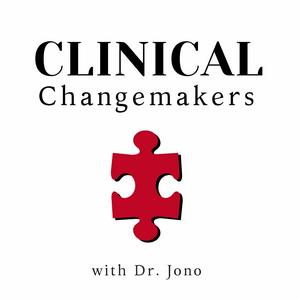
Get the free radio.net app
- Stations and podcasts to bookmark
- Stream via Wi-Fi or Bluetooth
- Supports Carplay & Android Auto
- Many other app features
Get the free radio.net app
- Stations and podcasts to bookmark
- Stream via Wi-Fi or Bluetooth
- Supports Carplay & Android Auto
- Many other app features


Clinical Changemakers
download the app,
start listening.

